Stanley Ho: the man who made Asia’s Las Vegas
Stanley Ho, who died last month, arrived in a dying fishing port as a young man with just ten dollars to his name. He transformed his new home into a global gambling colossus.
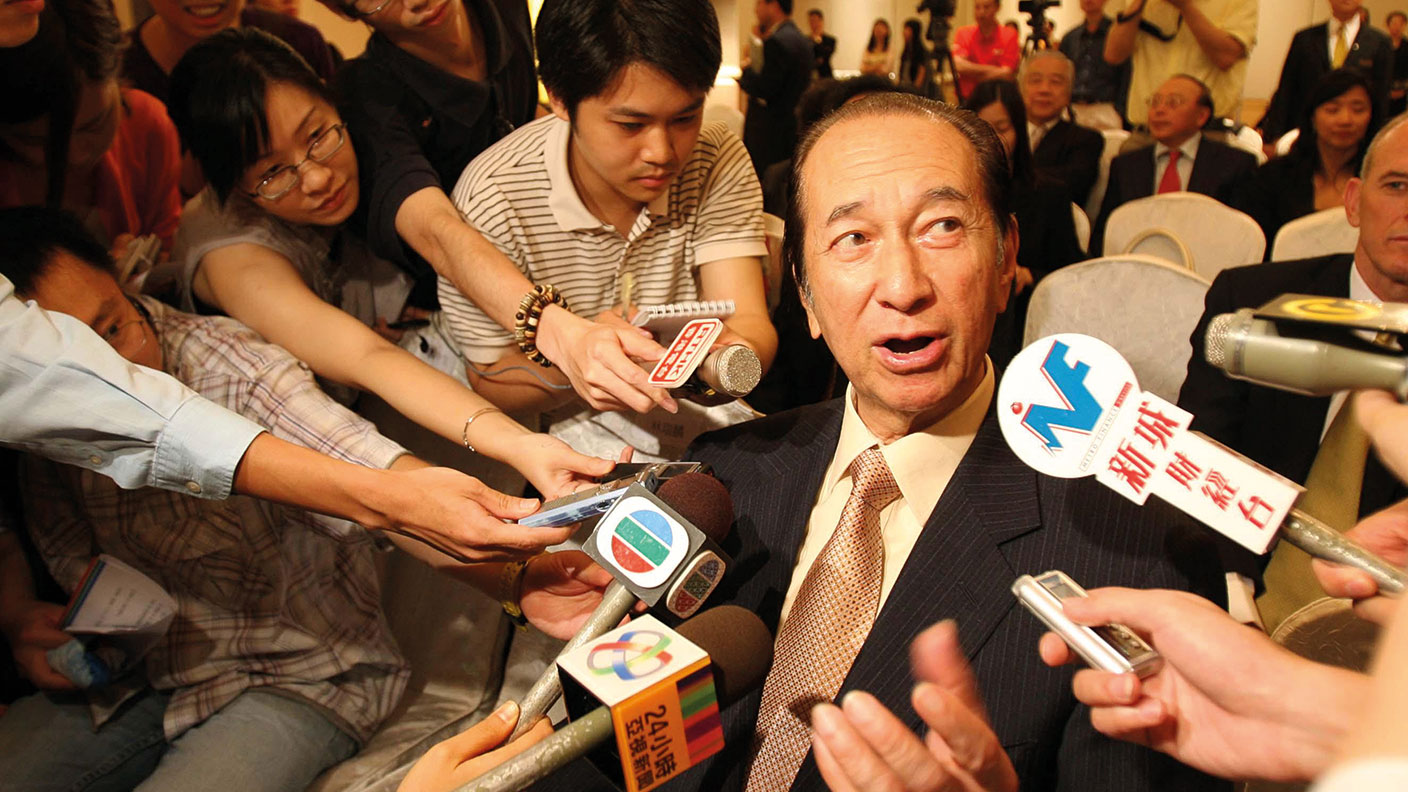
Get the latest financial news, insights and expert analysis from our award-winning MoneyWeek team, to help you understand what really matters when it comes to your finances.
You are now subscribed
Your newsletter sign-up was successful
Want to add more newsletters?

Twice daily
MoneyWeek
Get the latest financial news, insights and expert analysis from our award-winning MoneyWeek team, to help you understand what really matters when it comes to your finances.

Four times a week
Look After My Bills
Sign up to our free money-saving newsletter, filled with the latest news and expert advice to help you find the best tips and deals for managing your bills. Start saving today!
Stanley Ho, the gambling patriarch who died last month of a stroke aged 98, had “a sharp wit, a hustler’s instinct” and “a knack for showmanship”, but he himself stayed away from casino floors, says Asia Tatler – a magazine whose pages he frequently graced. “I don’t gamble at all. I don’t have the patience,” he once said.
Ho much preferred making deals. His career as a betting tycoon began in 1961 when he won a monopoly to run casinos on Macau, then a dying fishing port off the coast of China, which he continued to hold for more than four decades at a time when casinos were banned on the mainland. Ho led the transformation of that territory into the world’s most lucrative gambling destination, eclipsing Las Vegas.
How he made his first million
Stanley Ho Hung-sun was born in Hong Kong in 1921 into one of the territory’s four “big families”, which also included the Li, Hui and Lo business dynasties, says The Daily Telegraph. His paternal great-grandfather, Charles Bosman, was a Dutch-Jewish merchant who co-owned Hong Kong’s first hotel. Bosman’s two sons by a Chinese mistress – Ho’s grandfather and great-uncle – went on to achieve huge wealth and influence as “compradores” (local agents) for the trading house of Jardine Matheson and became celebrated civic leaders.
MoneyWeek
Subscribe to MoneyWeek today and get your first six magazine issues absolutely FREE

Sign up to Money Morning
Don't miss the latest investment and personal finances news, market analysis, plus money-saving tips with our free twice-daily newsletter
Don't miss the latest investment and personal finances news, market analysis, plus money-saving tips with our free twice-daily newsletter
Ho’s teenage years were spent in relative poverty after his own father lost heavily speculating on the Hong Kong exchange in 1934 and fled in disgrace to Vietnam. “That reversal of fortune,” Ho later said, “turned him from an unpromising student” into an “ambitious young wheeler-dealer”. When the Japanese invaded Hong Kong in 1941, he arrived in “neutral” Macau as a refugee with just HK$10 to his name. Ho found secretarial work with the biggest company in Macau – a Japanese-owned import-export firm – and his employers were so impressed with his prowess that they made him a partner in 1943, when he was just 22, says The New York Times. The territory was “a hive of vice, espionage and smuggling in and out of mainland China”, and Ho later claimed to have made his first million by the end of World War II, dealing (some would say “smuggling”) kerosene, rice and luxury goods. He channelled this wealth into a construction company that rode Hong Kong’s post-war building boom. When Macau’s long-term gambling kingpins, the Fu family, fell into decline, he was perfectly placed to grab the monopoly.
A thoroughly productive life
Through his flagship firm, SJM Holdings, Ho eventually owned and operated 20 casinos in Macau, says The Times. He employed nearly a fifth of the island’s workers and accounted for more than half of its economic activity. “If Macau prospers, I prosper,” he said. Indeed, Ho was adept at keeping the authorities – in Macau, Hong Kong and Beijing – onside. His “stranglehold” often led to accusations of links with local triads – strenuously denied. Nonetheless ,the taint of “organised crime” hobbled SJM’s international expansion: it was refused gambling licences in Nevada and Sydney.
Ho was famously as productive in his private life as in business, fathering at least 17 children with different partners, three of whom now lead his companies. He was also generous and charismatic, says Asia Tatler. “My father,” his daughter Pansy once said, “is the king for friendship.”
Get the latest financial news, insights and expert analysis from our award-winning MoneyWeek team, to help you understand what really matters when it comes to your finances.
Jane writes profiles for MoneyWeek and is city editor of The Week. A former British Society of Magazine Editors (BSME) editor of the year, she cut her teeth in journalism editing The Daily Telegraph’s Letters page and writing gossip for the London Evening Standard – while contributing to a kaleidoscopic range of business magazines including Personnel Today, Edge, Microscope, Computing, PC Business World, and Business & Finance.
-
 How a ‘great view’ from your home can boost its value by 35%
How a ‘great view’ from your home can boost its value by 35%A house that comes with a picturesque backdrop could add tens of thousands of pounds to its asking price – but how does each region compare?
-
 What is a care fees annuity and how much does it cost?
What is a care fees annuity and how much does it cost?How we will be cared for in our later years – and how much we are willing to pay for it – are conversations best had as early as possible. One option to cover the cost is a care fees annuity. We look at the pros and cons.
-
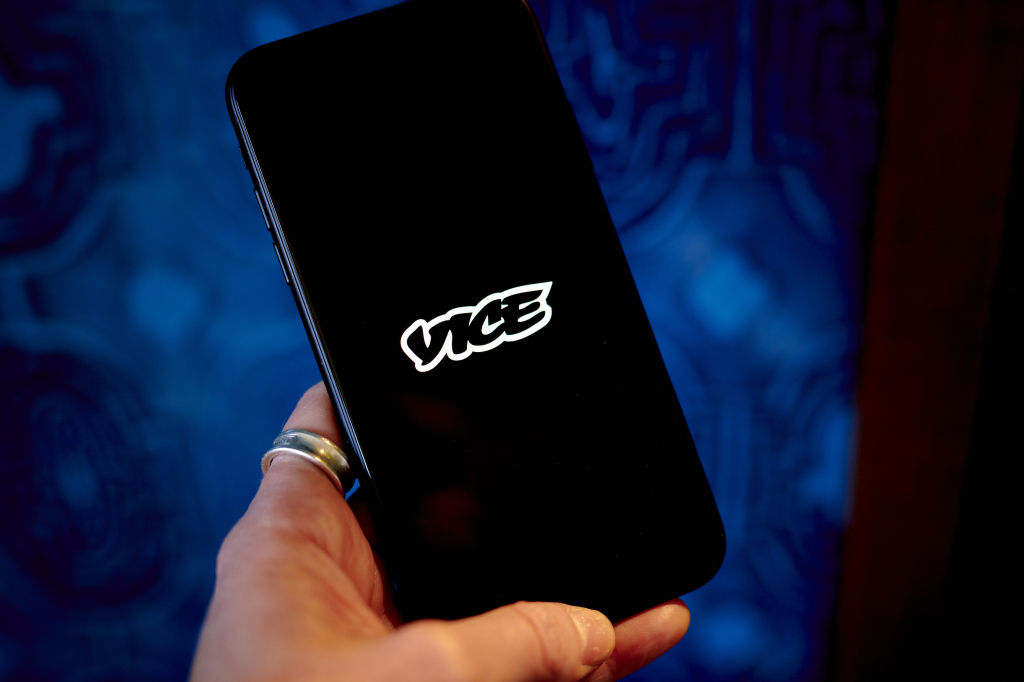 VICE bankruptcy: how did it happen?
VICE bankruptcy: how did it happen?Was the VICE bankruptcy inevitable? We look into how the once multibillion-dollar came crashing down.
-
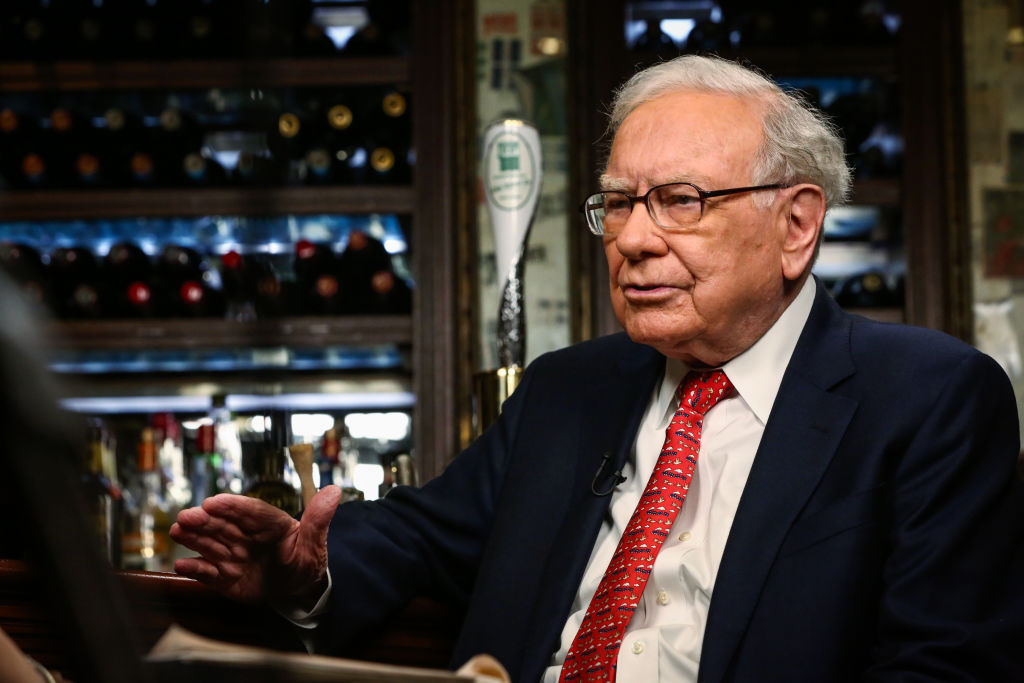 What is Warren Buffett’s net worth?
What is Warren Buffett’s net worth?Warren Buffett, sometimes referred to as the “Oracle of Omaha”, is considered one of the most successful investors of all time. How did he make his billions?
-
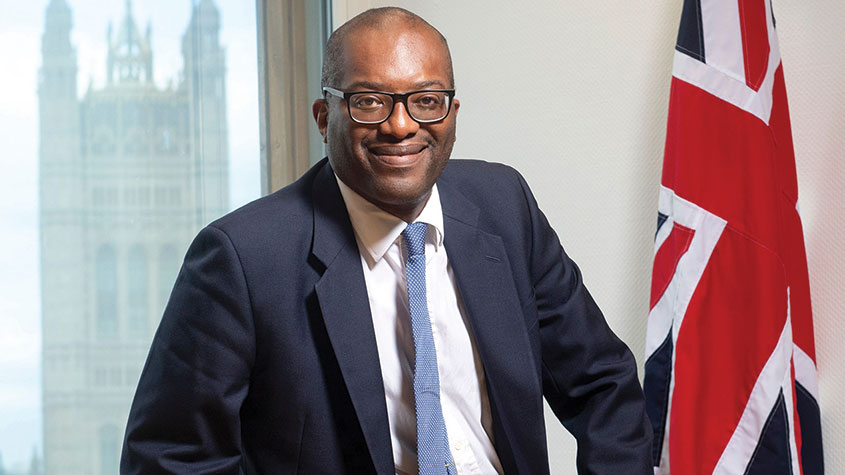 Kwasi Kwarteng: the leading light of the Tory right
Kwasi Kwarteng: the leading light of the Tory rightProfiles Kwasi Kwarteng, who studied 17th-century currency policy for his doctoral thesis, has always had a keen interest in economic crises. Now he is in one of his own making
-
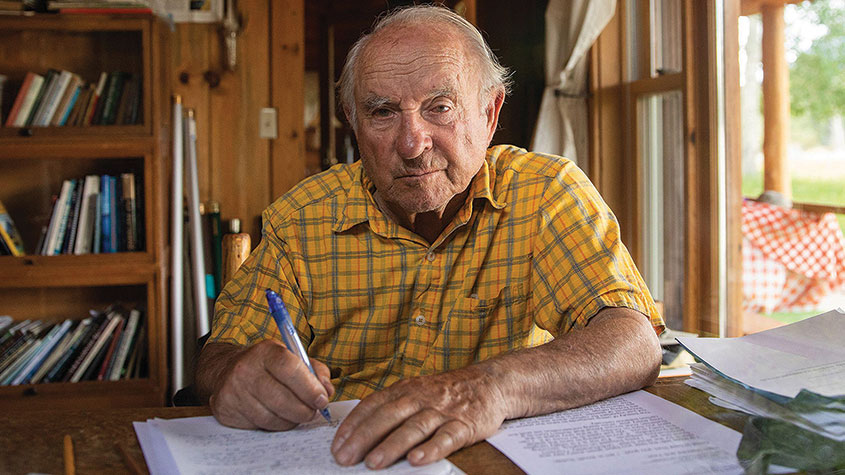 Yvon Chouinard: The billionaire “dirtbag” who's giving it all away
Yvon Chouinard: The billionaire “dirtbag” who's giving it all awayProfiles Outdoor-equipment retailer Yvon Chouinard is the latest in a line of rich benefactors to shun personal aggrandisement in favour of worthy causes.
-
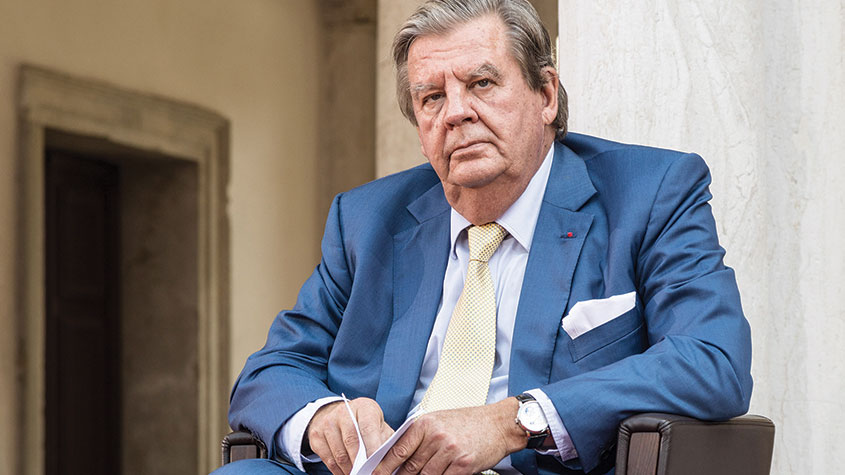 Johann Rupert: the Warren Buffett of luxury goods
Johann Rupert: the Warren Buffett of luxury goodsProfiles Johann Rupert, the presiding boss of Swiss luxury group Richemont, has seen off a challenge to his authority by a hedge fund. But his trials are not over yet.
-
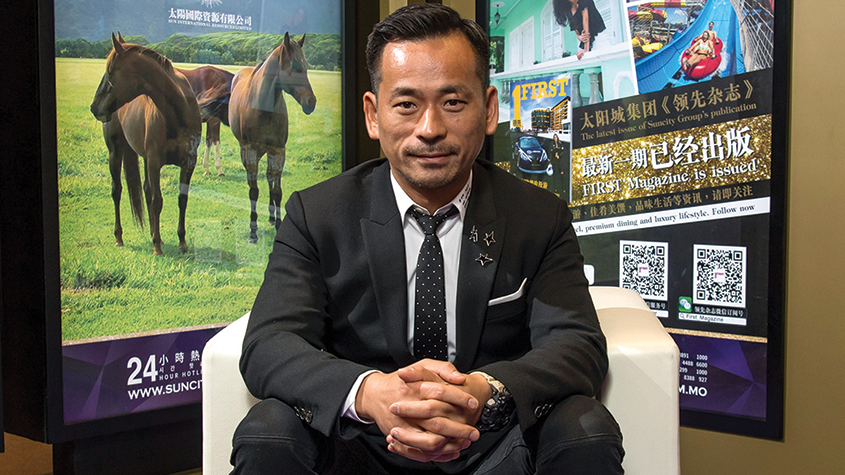 Profile: the fall of Alvin Chau, Macau’s junket king
Profile: the fall of Alvin Chau, Macau’s junket kingProfiles Alvin Chau made a fortune catering for Chinese gamblers as the authorities turned a blind eye. Now he’s on trial for illegal cross-border gambling, fraud and money laundering.
-
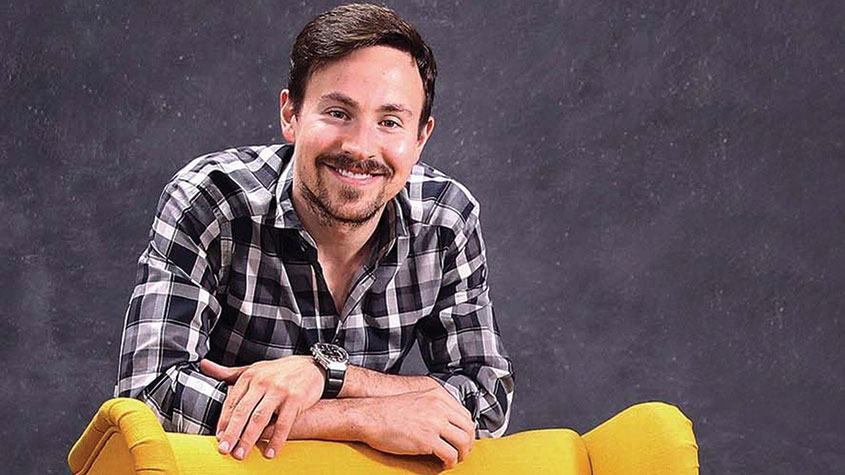 Ryan Cohen: the “meme king” who sparked a frenzy
Ryan Cohen: the “meme king” who sparked a frenzyProfiles Ryan Cohen was credited with saving a clapped-out videogames retailer with little more than a knack for whipping up a social-media storm. But his latest intervention has backfired.
-
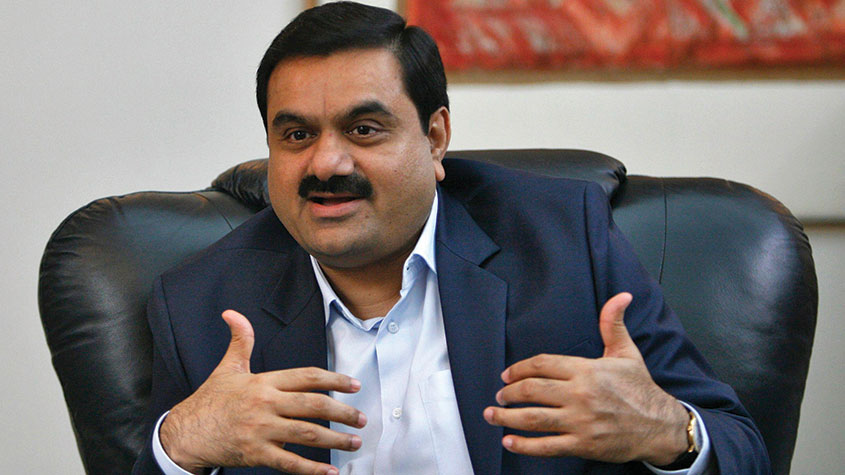 The rise of Gautam Adani, Asia’s richest man
The rise of Gautam Adani, Asia’s richest manProfiles India’s Gautam Adani started working life as an exporter and hit the big time when he moved into infrastructure. Political connections have been useful – but are a double-edged sword.